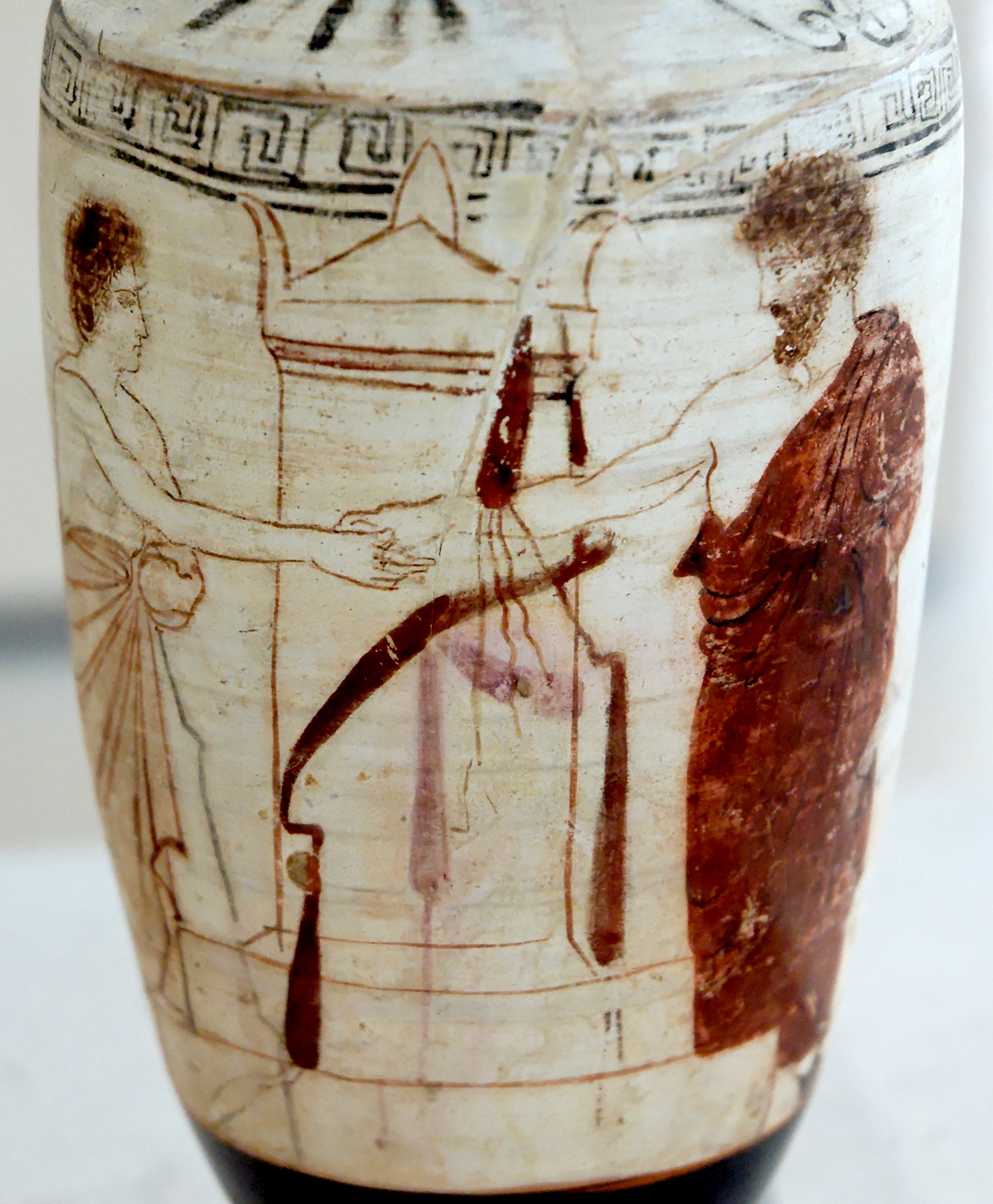Why Social Norms and Etiquette Matter During the Coronavirus Pandemic
Can Americans maintain their personal connections with each other?
To maintain a sense of normalcy (and sanity) during this time of coronavirus-induced self-isolation, my husband and I have been taking our newborn on daily walks around our Indianapolis neighborhood.
On our strolls, we’ve noticed how drastically social norms have changed over the course of just a few weeks of social-distancing. It used to be unthinkably rude to see someone coming toward you on the sidewalk and immediately cross to the other side; now it is the courteous thing to do. While attempting to maintain a six-foot distance when sharing a single-lane walking path, we’ve noticed that many people now avoid eye-contact and acknowledging the existence of others entirely—as if greeting one another might alone transmit the virus. Our neighbors are beginning to wear masks, which makes it difficult to detect subtle facial expressions and social cues. And, of course, we are no longer shaking hands; if Dr. Anthony Fauci had his way, we never would again.
In the absence of these social norms—greeting one another, eye contact, a handshake—we’ve come to appreciate how essential they are to building relationships and trust, the building blocks of a free and flourishing society. Yet we live in a time when these norms are no longer beneficial; some are even dangerous. This time of isolation means we need relationships more than ever, and we must therefore strive to find other ways to maintain community. After all, it is not the form of the norm that is important, but the substance it communicates: recognition of our interlocutor’s irreducible human dignity, a recognition upon which civilization depends.
Accordingly, in this era of social-distancing it is essential that we cultivate new norms that remind us of what makes us human, and our need for community.
Take handshaking. This norm dates to the fifth-century BC Greece and originated as a way to show that neither party held a weapon, and did not mean the other harm. Today, rather than communicating peacefulness, the threat of viral transmission makes handshakes dangerous. But thankfully we have alternatives: making eye contact, offering a wave, and maybe even a behind-the-mask smile, all of which are still important ways to make the most of an interaction with someone during social distancing.

The important—and fundamental—point is that even as we pause our handshakes, we continue to acknowledge others. Failing to do so is bad for community-building, but can also be dangerous indeed. William Penn recounts such a perilous incident in his famous work, No Cross No Crown. While walking the streets of Paris, a gentleman on the street suddenly challenged him to a duel, demanding satisfaction because Penn had “taken no notice of him” when he passed. This incident haunted Penn, as he realized the way that norms had the potential to inflate one’s pride. But it also crystalized in his mind the importance of norms that respect the inherent dignity and irreducible worth of every human life. Penn wrote, reflecting on the incident: “I ask any man of understanding or conscience, if the whole ceremony was worth the life of a man, considering the dignity of the nature, and the importance of the life of man, both with respect to God his Creator, himself, and the benefit of civil society.”
Good norms of etiquette are a way to counteract our default thinking of self-importance, training us, through habit and ritual, to consider the perspectives and needs of others alongside our own. In an era of social-distancing, and even as norms change, we need that reminder. Amid a pandemic—where fear and self-preservation reign—our society, and our humanity, will be sustained by the daily sacrifices we make for the sake of living together. We must shirk our cultural ethos that encourages absolute authenticity and unquestioning self-indulgence, and instead burnish norms that demonstrate respect for the inherent value we all share.
Alexandra Hudson is an Indianapolis-based writer, a 2019 Novak Fellow, and a Young Voices contributor writing a book on civility and American civil society. Follow her on Twitter: @LexiOHudson
Image: Reuters

